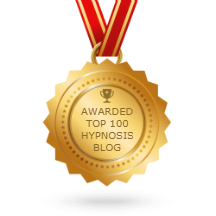by Hervé Boisdé
I’m writing this blog entry in the aftermath of yet another hurricane/tropical storm to hit the NYC area with devastating power and lingering effects. Flashbacks to Sandy are adding more emotional turmoil to a population already struggling with the stress and anxiety of a year and a half of Covid19 drama. Throughout my practice, and especially over the past several months, I’ve been working with clients with anxiety symptoms ranging from insomnia, binge eating and/or self-medicating, nervous tics, to digestive issues causes by accumulated stress. I’ve come to notice that using grounding techniques to get out of panic mode is hugely beneficial.
When you are anxious you aren’t present in the moment. Instead you’re projecting your fears into the future and trying to anticipate threats and possible negative outcomes. Your conscious mind may realize that there is no real present danger to your well-being, but your nervous system is stuck in a fight or flight loop…you just can’t calm down. Grounding exercises are a way for you to firmly anchor yourself in the present. They can be used to quiet anxiety and also to prevent anxiety from creeping in.
It can be useful to have a variety of grounding exercises to draw from in different situations, since just like not all techniques work the same for different people, various exercises can work better than others depending on the scenario.
Here is a short list of a few techniques you can try but there are many more ways to do “grounding”:
USE WATER
Water is very grounding and can be bathed in, sipped, splashed on your face or held in a container to feel the cold and dampness on the surface. Use words in your mind to describe the sensations to enhance the experience.
BREATHE
Breathing exercises form the backbone of many mindfulness practices. Deep breathing or just paying attention to your breath can help you to slow down your mind and focus your attention on the here and now.
USE NATURE
If you live in or near nature just getting outside is very ‘naturally’ grounding. Look around and take in the sights, sounds and smells of the earth. Take off your shoes and connect to the ground. Literally.
USE GRAVITY
Stand or sit in a solid posture and feel the force of gravity pulling you down towards the center of the earth. Take it up a notch by imagining a cord connecting your tailbone (root chakra) to the earth’s core and tightening, pulling you down even stronger.
USE TOUCH
Hold something and really focus on it. Some people use objects that they feel have some special meaning or energy about them, like crystals or stones, but anything will work if it feels right to you. Moving an object from hand to hand, back and forth, uses bilateral stimulation in your brain to calm you down.
USE YOUR BODY
Exercise and body movements can release adrenaline-fueled energy to do some other more calming techniques afterwards. Dancing is especially useful for this since it helps you to get in the “flow” and triggers the happy chemicals in your brain.


